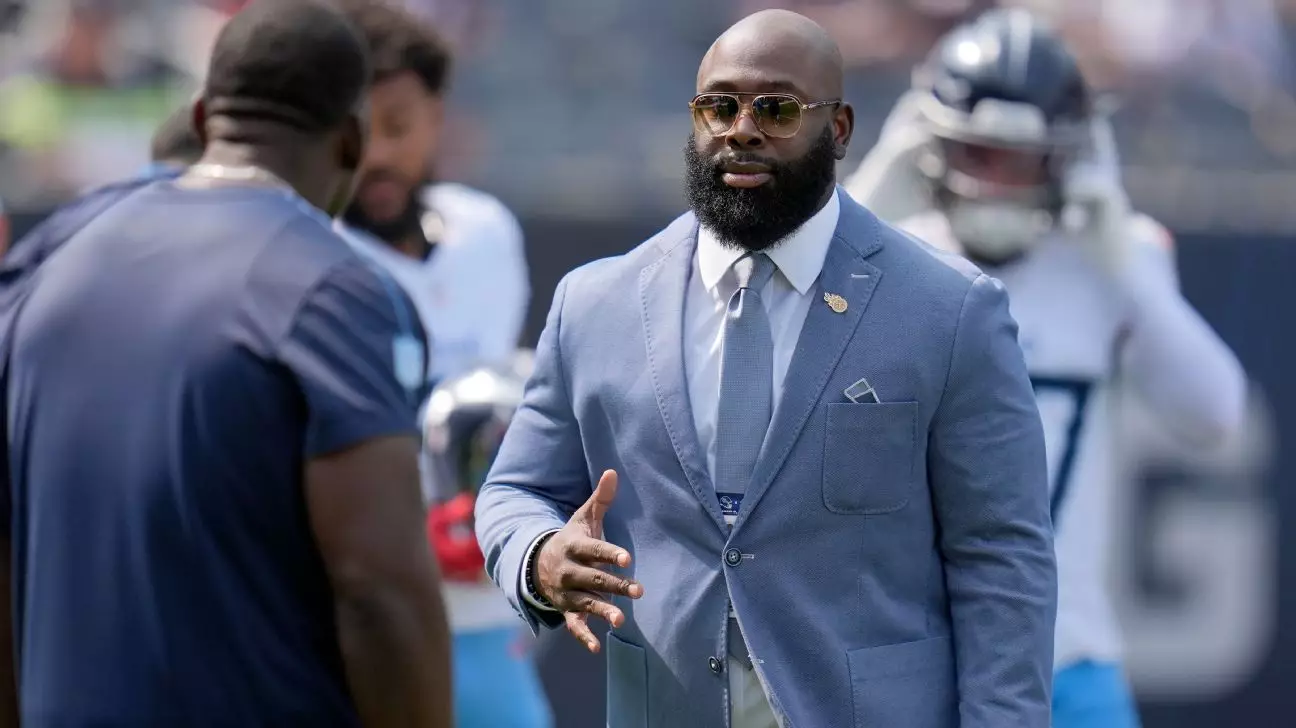In a bold move signaling a desire for change and immediate improvement, the Tennessee Titans have parted ways with general manager Ran Carthon after a dismal season that concluded with a 3-14 record. This performance not only placed the Titans at the bottom of the NFL standings but also secured them the coveted first overall pick in the 2025 draft. Controlling owner Amy Adams Strunk expressed her dissatisfaction, highlighting the lack of progress over the last two years as pivotal in the decision to let Carthon go.
The Titans’ disappointing trajectory raises significant questions about organizational strategy and the underlying issues contributing to the team’s failures on the field. Strunk’s statement encapsulates the frustration felt by fans and stakeholders alike, emphasizing a critical need for revitalization in both management and on-field performance.
With the departure of Carthon, the Titans have a clear plan in place regarding their leadership structure moving forward. Head coach Brian Callahan, who has yet to make a substantial impact in his first season—culminating in the organization’s worst record since 2015—will retain his position as the team aims to establish continuity in coaching. However, ambiguity remains as president of football operations, Chad Brinker, is set to take an active role in selecting a new GM while retaining final authority over roster decisions.
This dual-leadership approach, while strategic in theory, raises concerns about hierarchy and decision-making fluidity within the organization. By allowing Brinker to hold final say over significant roster moves, the Titans may inadvertently stifle the new GM’s ability to operate independently or establish their vision for the team.
The Titans are now on a quest to find a general manager whose experience aligns closely with the team’s needs for a revitalized scouting approach. Brinker emphasized the organization’s desire to acquire a candidate proficient in evaluating college talent and adept at orchestrating draft strategies that reflect long-term success. The hope is to find someone with a track record in a flourishing organization, therefore increasing the likelihood of fostering a successful environment in Nashville.
The question remains: can the Titans successfully attract top-tier talent for this role? The alignment of the new GM’s philosophy with that of Callahan will be critical. If the two can foster a cooperative dynamic, there’s potential for innovative strategies that could remedy the team’s current woes.
The Titans’ overhaul has not gone unnoticed by fans or analysts, with reactions varying from relief to skepticism. Notably, the response from Colorado coach Deion Sanders—commenting on the first overall pick possibility that could include his son, Shedeur—signals the broader implications of the Titans’ decisions within the league and amongst college football. The spotlight now shines on Nashville as it prepares for an important offseason filled with potential roster transformations.
As the franchise incorporates new leadership, it is imperative that decisions made this coming offseason resonate positively with the fanbase. The messaging from ownership and management must articulate a clear vision for moving forward, one that not only focuses on the immediate draft but emphasizes a comprehensive plan for sustained success.
With a record of 9-25 over the last two seasons, the Titans face a critical juncture in their pursuit of relevance within the NFL. The dismissal of Ran Carthon is merely the first step; it signals a fundamental acknowledgment that what was once tried is no longer viable. The new general manager will not only need to revamp the roster but also instill a culture of winning that has been decidedly absent in recent years.
As Nashville prepares for significant changes, one cannot help but ponder whether this restructuring will yield the necessary results to restore the Titans as a competitive force in the league. The organization stands at a crossroads, where bold decisions must be coupled with strategic execution to reshape its identity and results both on and off the field. Only time will tell whether these changes herald a new era of Titans football or if they are simply a temporary fix to deeper organizational issues.

